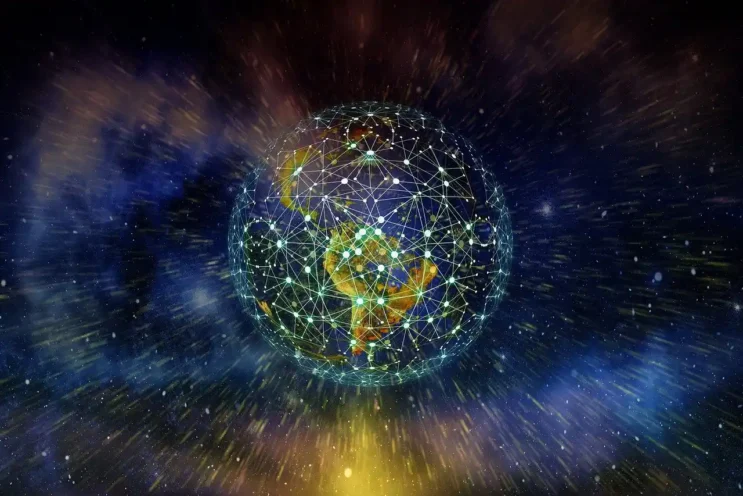The thought of Earth suddenly coming to a halt is fascinating and unsettling. It’s one of those scenarios that sounds straight out of science fiction but can open our minds to the delicate balance of our planet’s systems. Let’s dive into this mind-bending concept, unravel its mysteries, and explore the dramatic answer to the question what would happen if the earth stopped spinning?
The Basics of Earth’s Rotation
Earth rotates at an astonishing speed of about 1670 kilometers per hour at the equator. This spinning motion is what gives us day and night. Without it, one half of the planet would remain in perpetual darkness while the other would be scorched under constant sunlight. The rotation also influences wind patterns, ocean currents, and the planet’s shape.
The Immediate Shockwave
If Earth stopped spinning suddenly, the atmosphere wouldn’t stop with it. This means winds would continue to move at the planet’s original rotational speed. Imagine hurricane-force winds sweeping across the land, toppling buildings, and reshaping landscapes. The sheer force would be catastrophic, creating unimaginable destruction.
The Death of Days and Nights
A non-spinning Earth would no longer have a 24-hour cycle. Days would stretch into months, and nights would do the same. The side facing the sun would become unbearably hot, while the dark side would freeze. The contrast between the two extremes would make life nearly impossible as we know it.
The Impact on Gravity
Earth’s rotation affects its shape, making it slightly flattened at the poles and bulging at the equator. If the planet stopped spinning, this bulge would disappear. Water from the oceans would rush toward the poles, submerging land masses and creating supercontinents in the equatorial regions. Coastal areas would be completely reshaped.
The Disruption of Weather Patterns
The Coriolis effect, caused by Earth’s rotation, directs wind and ocean currents. Without it, weather systems would behave unpredictably. Hurricanes, which rely on the Coriolis effect, would cease to form, but new, strange weather phenomena might arise. The lack of rotation would throw global climates into chaos.
The Magnetic Field Mystery
Earth’s magnetic field is generated by its spinning core. Without rotation, the core’s movement might slow, weakening the magnetic field. This protective shield guards us from harmful solar radiation. A weakened or absent magnetic field would expose the planet to dangerous cosmic and solar particles, posing significant risks to life.
Life on the Edge
Species that thrive on the predictable rhythm of day and night would struggle to adapt. Plants would suffer, as long periods of sunlight would scorch them, and prolonged darkness would prevent photosynthesis. Animals, including humans, would face challenges in finding food, shelter, and safety in these extreme conditions.
A New Shape of the World
The redistribution of water toward the poles would create new landmasses and alter coastlines. Mountains, valleys, and plains would look vastly different. The geography we’re familiar with would be replaced by a new, alien landscape. It would be a world unrecognizable to those who live on it now.
The Psychological Effects
Humans are creatures of habit, deeply connected to the rhythms of Earth. A world without day and night would disrupt biological clocks, leading to confusion and mental health challenges. The eternal sun or unending darkness would take a toll on our minds and spirits, challenging even the strongest among us.
Could Life Survive?
While most life forms would struggle, some might adapt. Extremophiles, organisms that thrive in harsh environments, could find a way to survive. Humans, with technology and ingenuity, might create artificial habitats to shield against extreme conditions. The resilience of life could surprise us.
Lessons from a Spinning Planet
This thought experiment reminds us how deeply interconnected Earth’s systems are. Every aspect of our planet’s design plays a role in sustaining life. By imagining such a scenario, we can better appreciate the delicate balance that allows us to thrive.
Could It Ever Happen?
The likelihood of Earth stopping its rotation is nearly zero. Such an event would require an enormous external force, far beyond anything we currently know. Still, thinking about it sparks curiosity about how the universe works and our place within it.
Imagining a World of Stillness
A motionless Earth would feel eerily different. The sun would rise and set over centuries, not days. Seas would swell in new directions, and humans might cling to the equatorial regions, avoiding the frozen poles or scorching deserts. It would be a surreal existence.
Why We Should Care About Rotation
This fun thought experiment highlights how much we depend on Earth’s rotation. It governs our lives in ways we barely notice. By imagining its absence, we can see how every system on our planet is interwoven, creating the perfect conditions for life.
The Bigger Cosmic Picture
Rotation is common among celestial bodies. It plays a role in the formation and stability of planets, stars, and galaxies. Earth’s spin connects us to the larger mechanics of the universe, reminding us that we’re part of something vast and intricate.
What Science Teaches Us
Exploring such scenarios allows scientists to better understand the forces shaping our world. While this idea is purely theoretical, it challenges us to think critically and expand our knowledge about planetary dynamics and life’s adaptability.
Cherishing Our Spinning World
Our rapidly spinning Earth is a gift we often take for granted. This exercise in imagination underscores the beauty and precision of our planet’s design. Every sunrise, breeze, and ocean current is a testament to the harmony of Earth’s rotation.
A World of Endless Fascination
As we conclude this journey into a still Earth, let’s marvel at the wonders of our spinning planet. Its rotation is not just a fact of science; it’s a story of life, movement, and connection. Through this lens, we can see the everyday miracles that shape our existence.
Final Thoughts on the Experiment
The Earth stopping its spin might seem like a far-off fantasy, but the thought experiment reveals profound truths. It shows us how much we rely on our planet’s rhythms and how interconnected its systems are. By dreaming of the impossible, we deepen our understanding of the possible.
 Life With Mamun
Life With Mamun